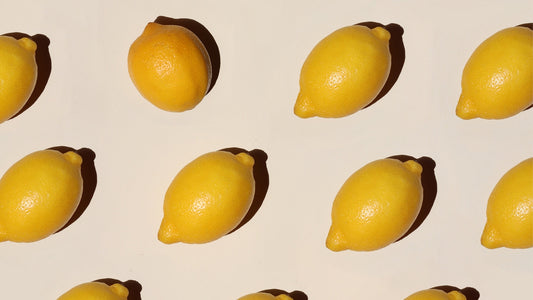Introduction
A fresh cup of coffee is more than just a morning ritual; it's a sensory experience combining aroma, flavor, and energy. However, for those wanting the pleasure without the caffeine punch, decaffeination is the way to go. Swiss Water Process and Mountain Water Process, both water-based decaffeination methods, are leading the charge in the natural decaffeination world. But how do they differ? This guide dives deep into the heart of both techniques.
1. The Science of Decaffeination
Decaffeination isn't just about removing caffeine; it's a meticulous procedure that ensures the flavor remains intact. While there are multiple methods, each differing in solvents and processes, the Swiss Water and Mountain Water Processes shine bright due to their organic, chemical-free approach. It's worth noting that these methods stand out particularly because they are water-based, leveraging the solvent properties of water to extract caffeine while leaving other essential coffee compounds intact.
2. Swiss Water Process: Diving Deeper
History: Originating in Switzerland in the 1930s, the Swiss Water Process was an innovative attempt to decaffeinate coffee without harmful solvents prevalent in many methods of that time.
Evolution Over Time: Since its initial development, the process has undergone numerous refinements. Earlier versions were somewhat rudimentary, often resulting in flavor loss. Yet, as time passed and technology improved—especially post-1980s with advancements in filter technology—the method saw better flavor retention and increased efficiency. Today, it's chiefly associated with a company in British Columbia, capitalizing on the region's pristine coastal mountain water.
Detailed Procedure:
- Green Bean Swelling: Fresh green beans are soaked in hot water, causing them to expand and releasing caffeine and coffee solubles.
- Caffeine Extraction: The solution, now replete with caffeine, is moved through a series of carbon filters. These filters, designed with precision, trap larger caffeine molecules, allowing smaller oil and flavor molecules to pass through.
- Flavor Saturation: Here’s where the magic happens. New beans are submerged in this now flavor-rich solution. With the environment outside the bean being caffeine-rich, the caffeine inside the bean ventures out, seeking equilibrium. However, the flavor doesn't dissipate, thanks to the previously extracted flavorful components in the water.
- Final Rinsing: Beans are thoroughly rinsed post-extraction, ensuring any residual caffeine on the surface is washed away.
Notable Advantages:
- Organic Certification: With no chemicals involved, it often comes with an organic stamp.
- Flavor Retention: The method is lauded for preserving beans' inherent flavor notes, resulting in a cup that's nearly indistinguishable from its caffeinated counterpart.
- Consistency: Given the controlled nature of the process, Swiss Water often yields consistent results, making it reliable for brands seeking uniformity across batches.
- No Chemicals: An important distinction, the Swiss Water Process steers clear of any artificial chemicals or solvents, relying solely on water and carbon filters for caffeine extraction.
3. Mountain Water Process: A Detailed Analysis
History: The Mountain Water Process is a relatively newer entrant to the decaffeination scene. Drawing inspiration from the Swiss Water Process, it was developed in Mexico, with an emphasis on using pure mountain water from from Pico de Orizaba, a majestic glacial peak..
Evolution Over Time: While it's not as old as the Swiss Water Process, the Mountain Water Process has also seen significant improvements. Initial methods might have been less precise in maintaining the bean's original flavor profile, but contemporary techniques have refined the process. Modern facilities prioritize water conservation, minimize waste, and have introduced specialized filtration systems to enhance the efficiency of caffeine removal while retaining essential oils and flavors intrinsic to the beans.
Detailed Procedure:
- Bean Preparation: Beans are first soaked, allowing them to swell and facilitating easier caffeine extraction.
- Caffeine Removal: Similar to the Swiss method, the water absorbing caffeine and flavors is separated from the beans. It's then passed through a unique filter, capturing the caffeine molecules.
- Reintroduction of Flavor: This caffeine-free but flavor-saturated water is recombined with the beans. Through equilibrium, caffeine migrates out of the beans into the water, while the beans retain their flavor.
- Final Rinsing: Similar to the Swiss method, the beans undergo a thorough rinse after extraction to remove any residual caffeine on the surface, ensuring a clean end product.
Notable Advantages:
- Unique Flavor Profile: The purity of mountain water introduces subtle notes, often described as crisp and smooth.
- Environmental Footprint: Utilizing natural mountain water, this process emphasizes sustainability and reduced environmental impact.
- No Chemicals: Just like the Swiss Water Process, the Mountain Water Process avoids any chemicals, using only nature's pure water for decaffeination.
- Consistency: When the process is meticulously managed, the Mountain Water Process can produce consistently decaffeinated beans across batches, maintaining the bean's original flavor profile.
4. Beyond Decaffeination: The Environmental and Ethical Impact
Modern coffee lovers don't just seek taste; they also care about the environmental and ethical implications of their brew. Both the Swiss and Mountain Water methods score high in this regard. Their water-based nature translates to fewer chemicals introduced into the environment, and their overall processes minimize waste. Moreover, many companies employing these methods frequently partner with fair-trade farms, ensuring an ethical sourcing and production chain.
5. The Verdict: Making Your Choice
Both methods provide a gateway to decaffeinated coffee that respects the bean's integrity. Your choice might hinge on taste preference or brand ethos. Some love the slightly brighter profile of Mountain Water beans, while others lean towards the robust flavor preservation of Swiss Water.
Conclusion
Decaffeination isn't just a process; it's a craft. In the skilled hands steering the Swiss Water or Mountain Water techniques, it becomes a celebration of innovation and respect for coffee. As you sip your next caffeine-free brew, spare a thought for the bean's epic journey, whether through pristine Swiss-inspired processes or the pure waters of a Mexican mountain.




